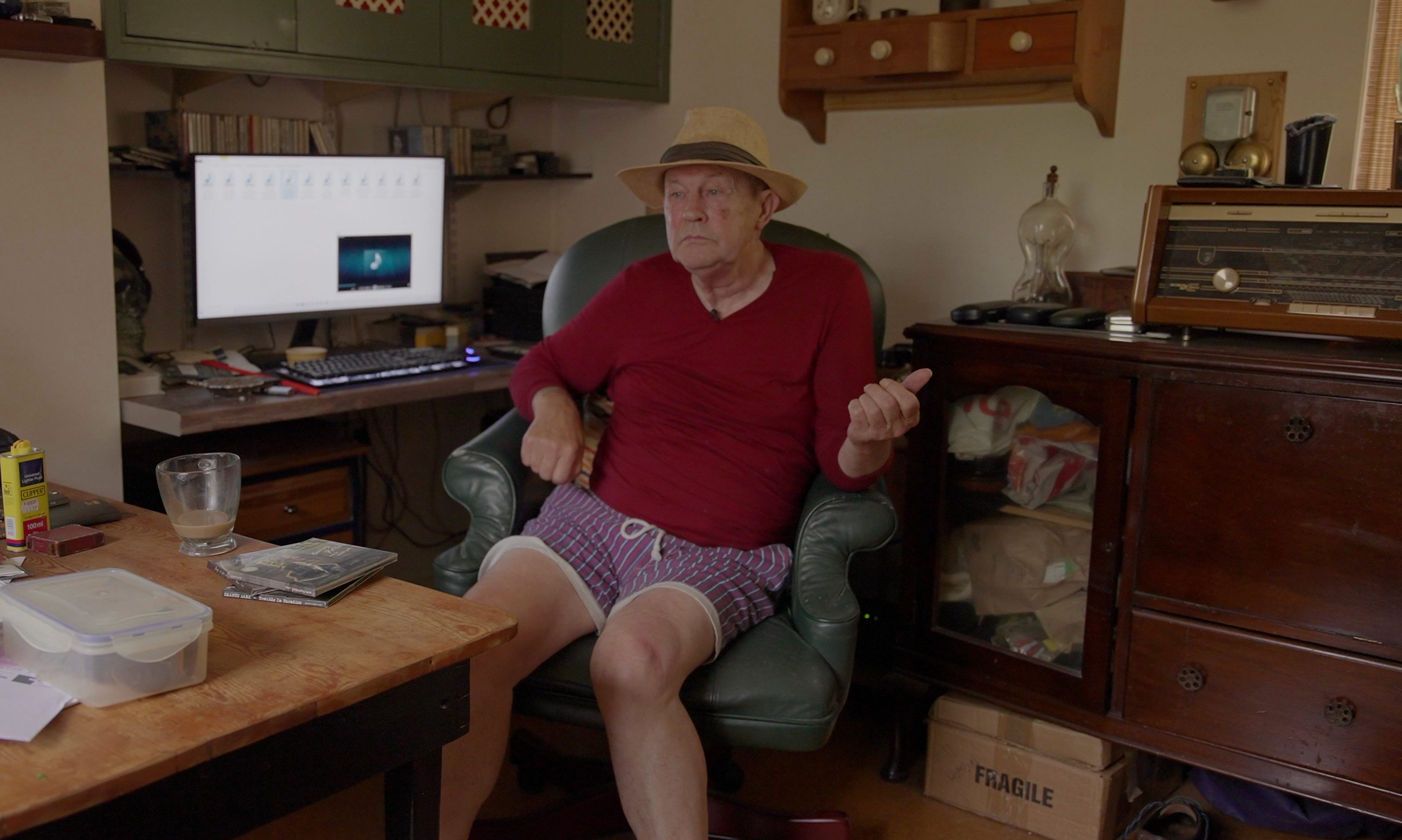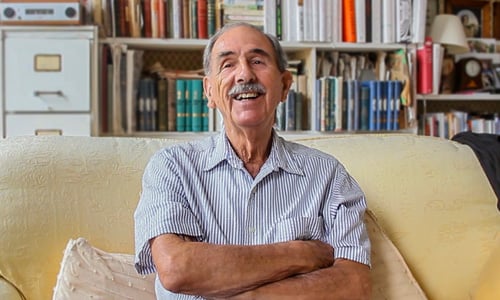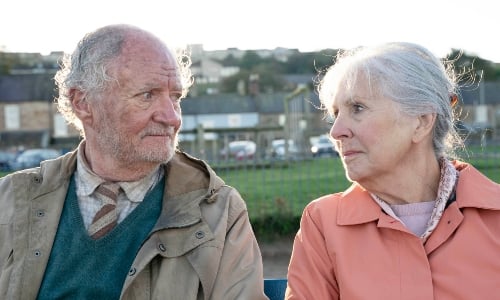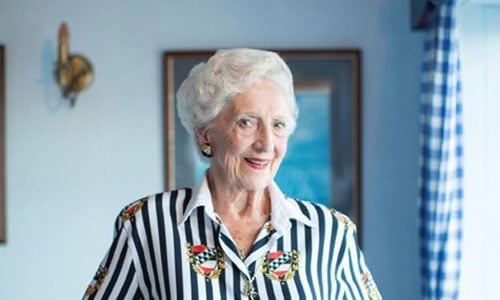Tom Michell is currently the subject of much attention. His 2015 book, The Penguin Lessons, has been made into a film starring Steve Coogan, which is now in cinemas.
Tom, 73, has therefore done a great number of interviews in support of the film, as well as attending premieres. Not that this fazes him, though, as the popularity of the book, which has been translated into 24 languages and is available as an audiobook narrated by Bill Nighy, means he’s had time to get used to having a public persona.
“These things have unrolled fairly gently over the last 10 years or so,” explains Tom, before correcting himself. “In fact, it’s unrolled gently over the past 50 years, from the day I happened to see a penguin flapping its wings. From that moment, that penguin has dominated my life.”
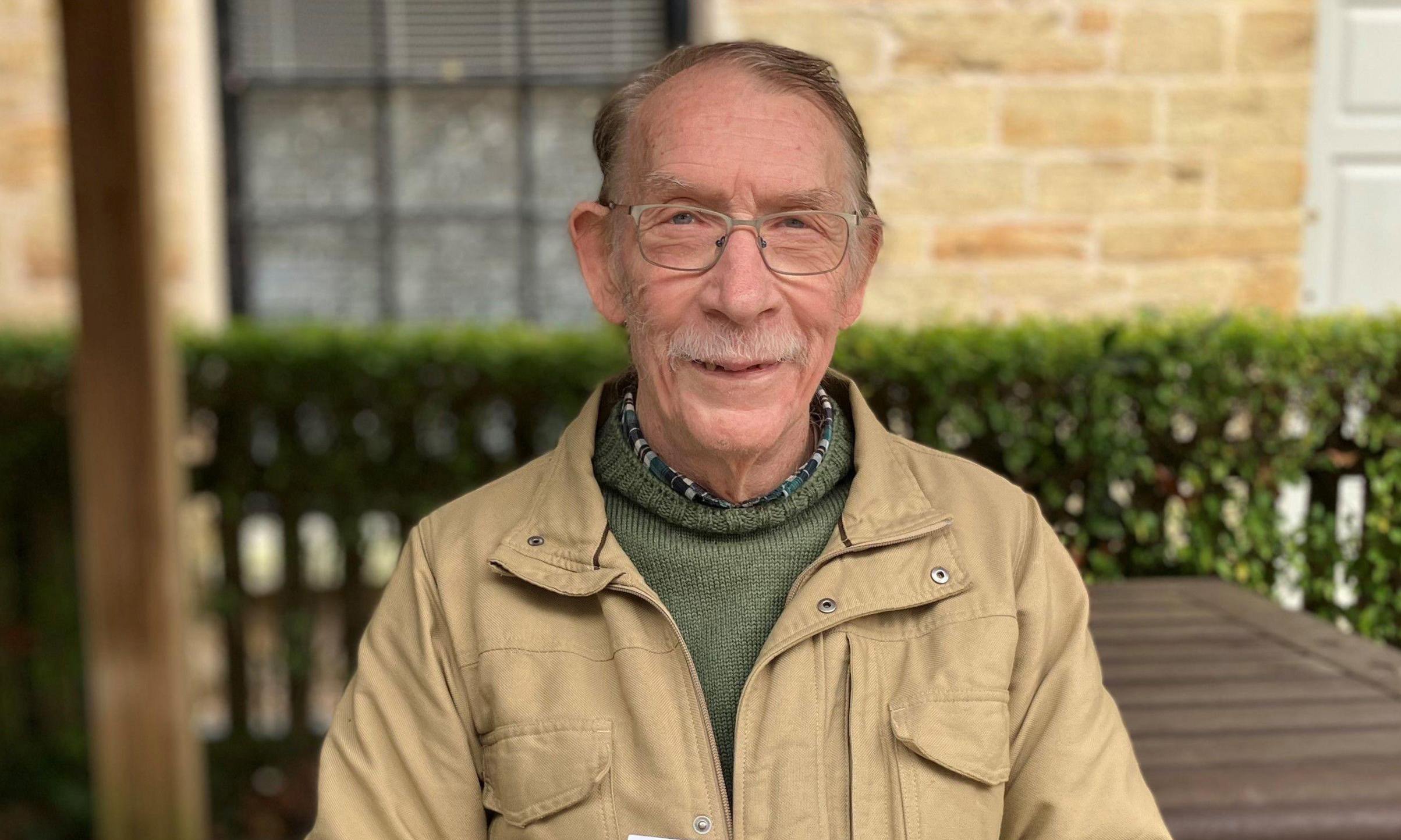
I was walking along a beach on my own, looking at these wonderful penguins lying dead at my feet, covered in oil and tar, when suddenly I saw one of them move.
A very special penguin
The penguin in question is the one Tom rescued from an oil spill on a beach in Uruguay in 1976, while on a break from working as a teacher in Argentina. Set against Argentina’s turbulent years in the aftermath of the collapse of the Peronist regime, Tom’s book tells the story of his time with the penguin that refused to leave his side, which he named Juan Salvador.
“I was walking along a beach on my own,” recalls Tom, “looking at these wonderful penguins lying dead at my feet, covered in oil and tar, questioning what kind of people could do this, when suddenly I saw one of them move.”
So began an endearing friendship between man and bird. Juan Salvador, a Magellanic penguin, a species native to South America, overcame the oil spill with Tom’s help. He quickly became a popular addition to the school he taught in, as an inspirational symbol of hope among the pupils and anyone else he encountered, in the shadow of a tough political climate.
There are some key differences between the book and the film. Firstly, in the film Tom is a somewhat disillusioned Englishman, while the real Tom admits to having “the time of his life” during that period. “I was young. I was qualified. The world was my oyster. I loved every single second of it and made every single second count.”
Additionally, the Tom in the film has had some painful experiences, making his responses to the events around him quite different to those of the real Tom, who was yet to experience true pain at that point. And while the Tom of the film is, initially, “run roughshod” by his pupils, the real man was a decidedly “old school” operator. “It was: ‘sit down and shut up now – this is the stuff you’re going to learn, like it or not.”
A change of age
The most significant change, however, resulted from the casting of the lead actor. While Tom was in his early twenties during his years in Argentina, the involvement of Steve Coogan – in his mid-50s at the time of casting, now 59 – resulted in Tom being ‘aged up’ for the screen. “We were thinking about younger actors who were less well known, but terribly good looking to play the role of Tom and do it fairly closely. Now, when an actor of the calibre and the reach of Steve Coogan comes along, you think, ‘Wow, 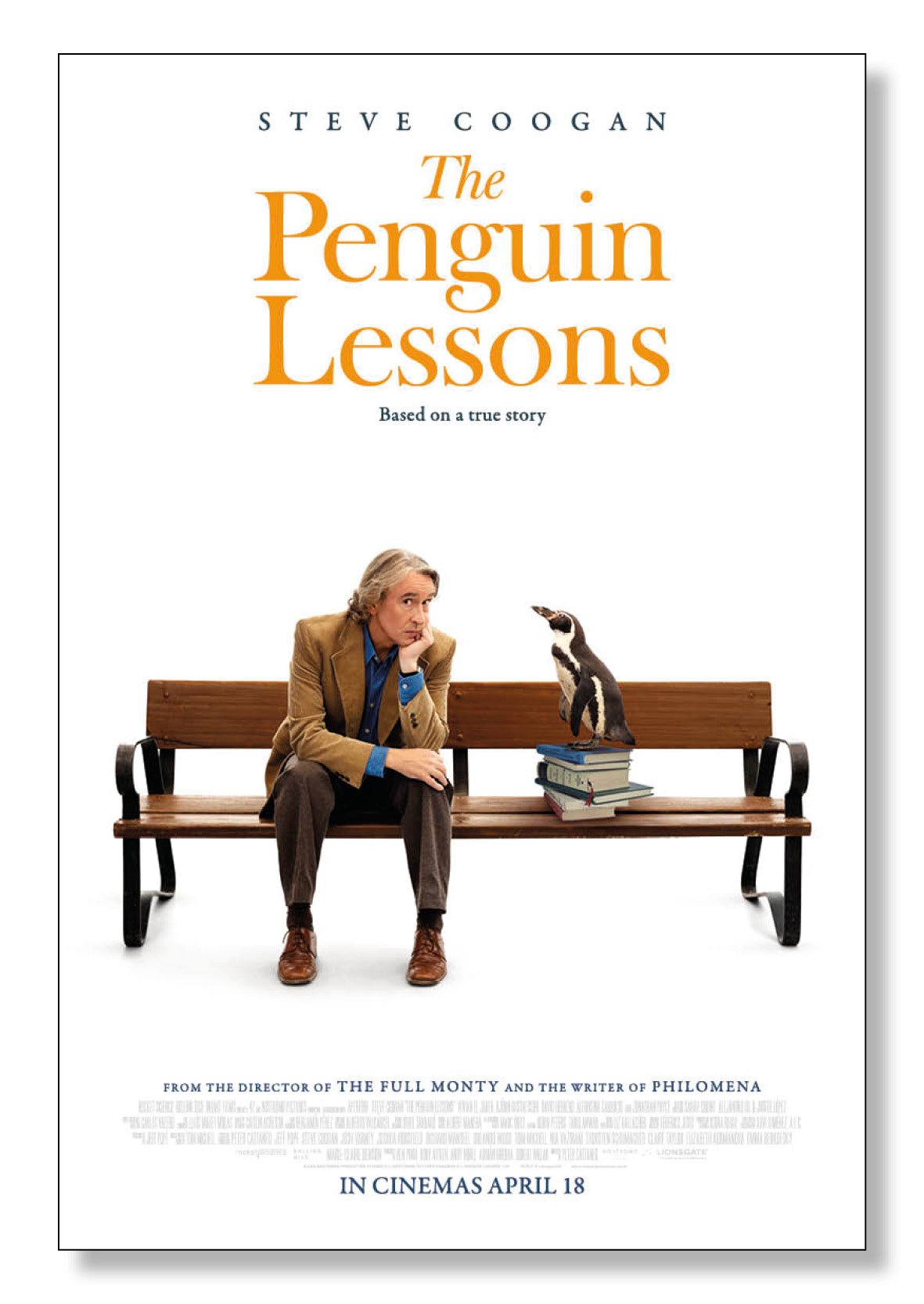 this is going to have much more impetus from the beginning than any of these unknown but terribly pretty 20-something-year-olds.”
this is going to have much more impetus from the beginning than any of these unknown but terribly pretty 20-something-year-olds.”
The alteration in age also allowed Tom’s ‘character’ to have much more of a story arc. The film’s director, Peter Cattaneo, who was nominated for an Academy Award for 1997’s The Full Monty, pointed out that an older man’s involvement in the story brought much more interest, which Tom agreed with.
“What sprang to mind was A Christmas Carol. If Scrooge had started out as a charming, avuncular gentleman who hands out half crowns to street urchins and smiles benevolently, but doesn't change during the book, it doesn't make a good story, does it? What is it about A Christmas Carol that means it gets read or screened every year? It's because you have this grumpy miser who, having experienced three spirits, changes and so Steve Coogan being a similarly miserable old git having an encounter with a penguin and changing has broad parallels. That’s why it works – and works better.”
Revisiting the past
Tom wasn’t much older than Steve Coogan is now when he began writing The Penguin Lessons in 2012. It’s a tale his wife encouraged him to write down so that their children could share it with their own children, though Tom didn’t write it in the form it’s in now until he was in his sixties. It is a story that seems too fantastical to be true, so when Tom was asked to prove its validity, he dug out some films he’d had for several years.
“I bought a cine camera when I was in Argentina. I had the film but what I couldn't do was get the films processed. When Animal Planet asked me if the story was true, I dug out the films not really knowing what was on them. After a quick internet search, I found somebody who said they could transfer the footage onto DVD, so had that done. And there, among all this footage of sea lions and walruses, killer whales and condors, llamas and South American cities, was a penguin in a pool with the kids. I was overjoyed.”

How can you leave your spouse of 40 years, just so that you can go and have treatment that might save your life? I couldn’t. I could not have left her.
A painful chapter
Six months after The Penguin Lessons was published, discussions about a film version began, though its filming was ultimately delayed by the arrival of the coronavirus pandemic. It was a particularly difficult period for Tom, who was already cautious about COVID. Then, within a matter of weeks of each other, both Tom and his wife were diagnosed with cancer. By February 2023, Tom was in hospital in “a bad state” and his beloved wife was receiving palliative care at home. “We were both looking at each other over WhatsApp thinking, ‘perhaps this is the end of the road’. It was a very, very emotional time.”
The situation became even tougher when Tom was offered a treatment that had seen some very good results but would necessitate going to Bristol and being in total isolation for a couple of months. “How can you leave your spouse of 40 years, just so that you can go and have treatment that might save your life? I couldn’t. I could not have left her.” Sadly, it wasn’t a decision Tom had to make, as his wife died soon after. “I think she probably decided that the only way I would go and have my treatment was if she loved us and left us, and she went.”
Tom on a potential new book
Tom discusses the possibility of writing a book about his experiences, both good and bad, in the years since the release of The Penguin Lessons.
Shared time together
Tom is speaking to Age UK from his home in Cornwall, with wooden beams looming overhead. The walls around the room are covered with collected artworks created by Tom and his late wife – his are pencil illustrations of various species of owls rendered in brilliant detail, while his wife’s efforts are beautiful paintings of flowers. “The world has lost a brilliant botanical artist,” Tom says of his wife. “We used to go to botanical art classes, and I used to sit there, rebel without a cause, drawing birds in black and white while everyone else discussed how they were going to get the colours right for some bluebells. We had a wonderful, shared time together.”
Tom’s love of wildlife remains, with a particular passion for birds of prey. While The Penguin Lessons is his only book under his own name, he has written numerous chemistry textbooks since he was in his thirties, which he attributes the clarity of his writing to. “I spent a lot of time teaching [chemistry] and trying to explain some of the more difficult concepts. As a teacher, I realised you need to carry students through a topic, explaining everything precisely as you go.”
When a country wants to put your book in front of their most precious asset, their children, that surely is a higher compliment than any other literary award.
Teaching multiple generations
A great source of pride for Tom is the fact The Penguin Lessons is taught as part of the National Curriculum for 14–16-year-olds in South Korea, which has a population of 52 million people. “When a country wants to put your book in front of their most precious asset, their children, that surely is a higher compliment than any other literary award,” beams Tom, who has three grandchildren.
Meanwhile, Tom’s children have been encouraging him to write a book about his life since the publication of The Penguin Lessons. While he mulls that idea over, we wonder what advice he might offer aspiring older writers who have the life experience but not the confidence to commit pen to paper, or fingertips to keyboard…
“Let the words flow and make sure it’s blindingly obvious what you’re trying to say,” offers Tom. “Don’t labour the points, don’t lecture people, but say what you have to say honestly and humbly, and make sure that people pick up the message.”
The Penguin Lessons is in cinemas now.



